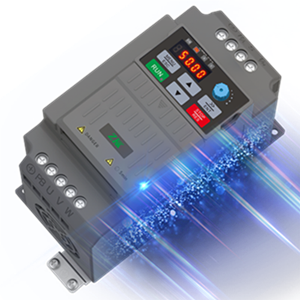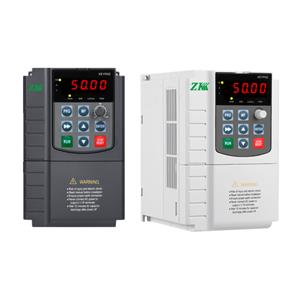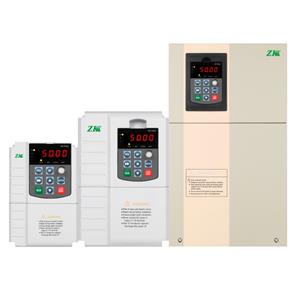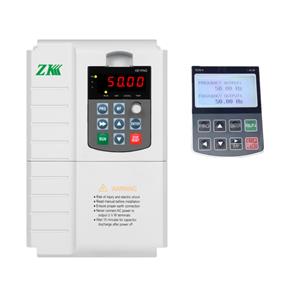The History of Frequency Converters
In 1964, PWM was applied to AC speed regulation system
French A. schcnung and H Stemmler first proposed to apply the communication technology of pulse width modulation (PWM for short) to the AC speed regulation system. Since then, the research of PWM speed technology has attracted high attention.
1967 The first inverter in the world
Finland Vasa Control System Co., Ltd., formerly known as STRONGB in Sweden, was founded in the 1960s. In 1967, it developed the world's first frequency converter, known as the originator of frequency converters, and created the world market for commercial frequency converters.
1968 Field Oriented Control Theory
Dr. Haas, a German, first proposed the magnetic field oriented control theory.
Rotor field oriented vector control of induction motor in 1971
German Burraschek also proposed the rotor field oriented vector control method of asynchronous motor, and compared DC motor with AC motor
1995 DTC controlled frequency converter
One person who proposed DTC in the world is German. ABB produced the first inverter controlled by DTC in 1995
1980s
Japanese scholars put forward the magnetic flux trajectory control mode, which makes the frequency conversion and voltage conversion technology (i.e. u/f control mode) become the core of the inverter technology. The researchers continue to focus on the further research of PWM technology and achieve the purpose of voltage and frequency regulation.
General frequency converter since 1992
Siemens has successively developed 6SE70 series universal frequency converters. It can realize frequency control, vector control and servo control respectively through PE, VC and SC boards, and has torque control function and trip free performance. The output static characteristics and common U/f control mode of universal frequency converter have been greatly improved. The mechanical characteristics are harder than those of asynchronous motors powered by power frequency power grid. This typical product belongs to the high functional U/f control mode universal frequency converter. On this basis, a high-performance vector control universal inverter has been developed and produced. The dynamic performance of this inverter has been greatly improved
In 1995, ABB first introduced the direct torque control universal frequency converter.
At present, it has become the core technology of all series of universal inverters. The dynamic torque response is less than 2mm, and the static speed accuracy with speed sensor is ± 0.01% The speed control accuracy of ± 0.1% can also be achieved without speed sensor. Other companies are also taking direct torque control as their goal
Recently, Hitachi developed a special integrated power module (ISPM) for general inverter
The rectifier circuit, inverter circuit, logic control, drive and protection, and power circuit are all integrated into a module. The volume of the general inverter is greatly reduced and the lead wire is reduced. The development of power electronic devices has greatly improved the performance of universal frequency converters
The future of frequency converter
It mainly develops from further optimizing control technology, increasing capacity, reducing volume, reducing cost, reducing noise and electromagnetic pollution to the environment, etc.
Where the development of frequency converter is not yet mature
The control technology of frequency converter has changed from U/f control to vector control and direct torque control, which has greatly improved the performance of AC speed regulation system. However, there are still some technologies to be further studied. Such as accurate estimation and observation of magnetic flux, on-line identification of motor parameters, etc.
Frequency conversion technology has also gone through decades of history, and the system of frequency converter is relatively mature, but how to break through the existing state to open a further market I think this should be the problem that every frequency converter manufacturer needs to think about in the future




